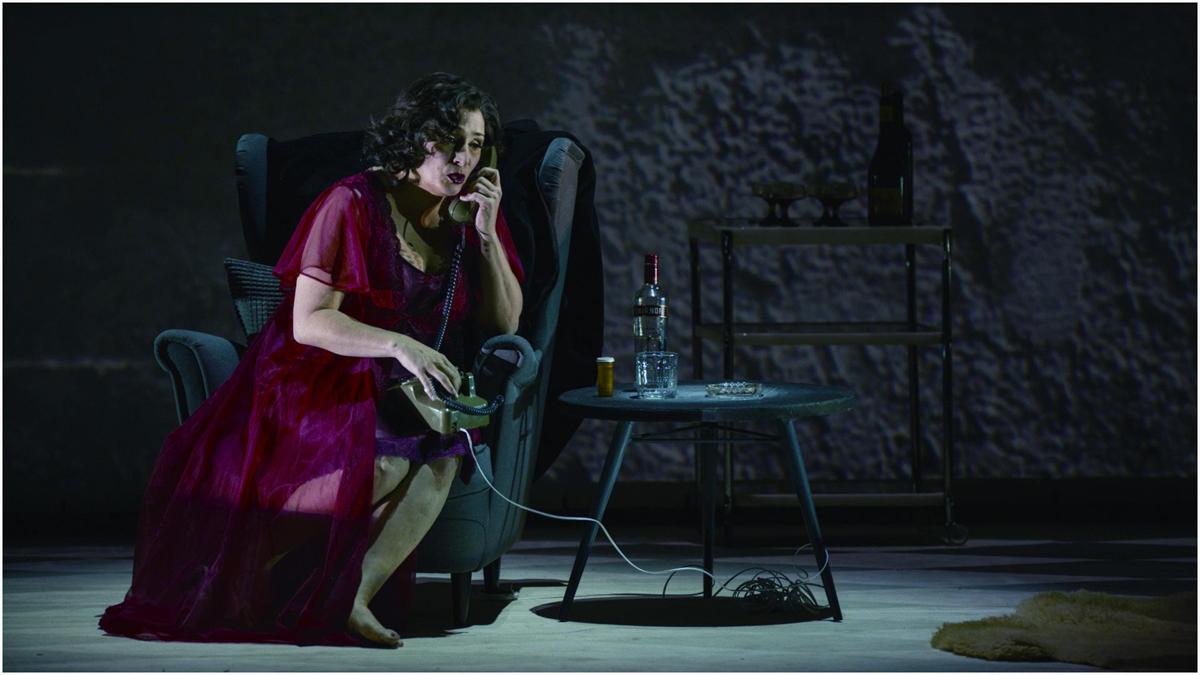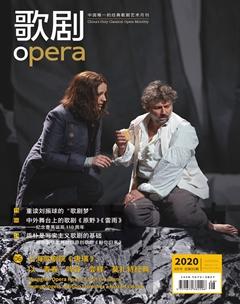后疫情时代的歌剧(二)
Joanna C.Lee
小瓊:上个月我们讲到了马德里成功的《茶花女》制作,其中演出人员均保持社交距离。这个月我们来探索还有哪些歌剧能符合严格的舞台安全规范,尤其是在一些仍然需要执行严格疫情防控措施的欧美国家。
小薇:马德里版的《茶花女》里,两位有情人完全没有肢体接触,始终隔着两米的“社交距离”。是不是还有别的歌剧能让角色相互保持距离呢?
小琼:我们不如再退一步,考虑一下独唱歌剧——这样演职人员就只有舞台上的唯一演员和乐池里的乐团了。我想到了弗朗西斯·普朗克于1958年创作的《人声》。
小薇:普朗克这部改编自让·柯克多1928年单人话剧的歌剧的确是一个非常“现代”的故事。房间里一名女子不愿与前男友分手,在电话里极力挽留。这名女子(剧中被称作“她”)在整场演出中手里都拿着电话。
小琼:观众的确只能听到她那边厢讲话,情绪激动、跌宕起伏。她把孤独所内在具有的煎熬和愤怒浓缩在了约40分钟的一幕戏里。我们都知道普朗克的代表作《加尔默罗修女的对话》(1957),比《人声》早一年;但《人声》的音乐语言更为冒险,捕捉了现代人幽闭恐惧的焦虑。
小薇:同样以电话为主题的另一部歌剧也很适合后新冠疫情时期的当下上演,那就是吉安·卡洛·梅诺蒂的独幕歌剧《电话》,仅需两人演唱。
小琼:虽然故事的主人公是一对爱人,但他们不必相互接触。故事(词曲均由梅诺蒂本人创作)的前情提要是男主人公想要向女主人公求婚,但总是不停地有人给女主人公打电话,有的是想和她聊天,有的甚至是拨错的电话。
小薇:我知道演出《电话》时常常以钢琴伴奏,这也让保持社交距离更为容易。
小琼:你知道这部20分钟长的喜歌剧是如何结束的吗?男主最终用电话求了婚。所以最后他们“浪漫”的二重唱是两个人拿着电话唱出来的——两个人分开站着,象征着他们在不同的空间里。还有什么能比这更好地保持社交距离呢?
Joan: Last month we discussed the successful production of a socially-distanced La Traviata in Madrid. This month I want to explore other operas that can potentially conform with strict health regulations on stage, specifically those still mandated in many countries in Europe and America.
Valery: Wed discussed the Madrid Traviata where the two lovers never touch and always remain two meters apart. Perhaps there are other operas that allow characters to stay far away from each other?
Joan: We could start by stepping back even further, with operas written for solo voice—just one singer on stage (and orchestra in the pit). Im thinking of Francis Poulencs La voix humaine (1958).
Valery: Poulencs opera version of Jean Cocteaus one-woman play from 1928 is indeed a “modern”story: inside a room, a woman is unwilling to let go of her ex-lover whom she tries to hold on in her phone conversation. The woman (referred to as “she”/Elle) has a phone in her hand throughout the performance.
Joan: Yes, the audience only hears her side of the conversation, but what an emotional rollercoaster it is! She epitomizes the suffering and exasperations inherent in loneliness, all captured in one act (lasting about 40 minutes). We all know Poulencs major opera, Dialogue of the Carmelites (1957), which preceded La voix humaine by a year. When it comes to musical language, La voix humaine is much more adventurous, capturing the modern anxieties of claustrophobia.
Valery: On the subject of telephones, another opera that can work well in the post-COVID era is Gian Carlo Menottis one-act opera The Telephone (1947). It only features two singers.
Joan: Although it is about two lovers, they dont necessarily have to touch. The premise of this story(libretto and music both by Menotti) is that the boyfriend wants to propose marriage, yet is constantly interrupted by phone calls she receives from people calling to chat, and even someone dialing a wrong number.
Valery: I understand that often The Telephone is performed with piano accompaniment, which also makes social distancing really easy.
Joan: Do you know how this 20-minute comic opera ends? The boyfriend ends up proposing marriage by phone. So their final “romantic” duet is sung with each of them holding a phone—standing apart to symbolize their being in two different spaces! How more socially distant can you get?

